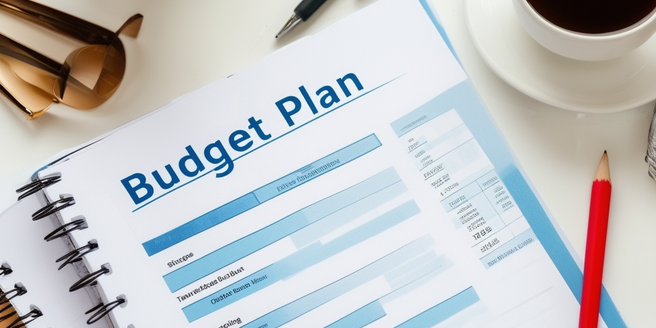Understanding the Importance of Budgeting
Budgeting during times of unemployment is paramount. In fact, a rigorous approach to budgeting can make the crucial difference between successfully navigating these tough times and falling into financial hardship. Unemployment periods are often uncertain and volatile, adding a layer of stress and anxiety to an already challenging situation. It renders a phase where income is limited or zero, but expenses can still run rampant. It is during these times where understanding the importance of budgeting can be an invaluable asset. A well-structured budget helps us gain a clear picture of our expenses, prioritize our spending, and ensure the limited finances are directed towards necessities.
How Unemployment Affects Financial Stability
Unemployment strikes the most essential pillar of individual financial stability – a steady income stream. An abrupt cut-off from a constant income source can lead to a financial whirlwind. In this scenario, devising a sound financial strategy could minimize the hardship. By creating an emergency fund, curbing unnecessary expenses, and exploring alternate income channels, you can better cushion the impact. Pending bills, daily expenses, and unforeseen costs can quickly deplete savings, pushing you down a path of financial instability. Moreover, the psychological stress from losing a job can further exacerbate financial strain. Learning about unemployment’s impacts on financial stability can help prepare and handle such situations.
Steps to Create a Budget During Unemployment
- Start by cataloging all sources of your income, however small, and thoroughly list down all of your expenses, ensuring no underlying costs sneak up on you.
- After recording, prioritize your expenditure based on covering essentials like food, shelter, health, and utilities.
- With financial stability in mind, curtail non-essential expenditures such as leisure activities and luxury items, postponing them for a better financial time.
- Consider finding ways to generate extra income, such as part-time jobs, freelance work, or exploring income-generating hobbies.
- Keep your budget under continuous review to account for factors such as inflation, lifestyle changes, or new income sources. Regular revisions and updates help to understand your financial standing.
Financial prudence during unemployment can be a beacon guiding toward financial stability, making this challenging period less daunting by maintaining a semblance of financial order.
Strategies to Minimize Expenses and Maximize Income
Cutting back on unnecessary expenditures and seeking deals wherever possible is key. Deciding on store-brand or sale items rather than brand-name ones, reducing luxuries, and making small changes like making coffee at home or enjoying a movie night in can lead to considerable savings. Additionally, exploring financial opportunities besides the usual 9-to-5 job is beneficial. Freelancing, part-time jobs, evening work, or weekend shifts can add to your income and alleviate financial strain during unemployment.
Conducting an inventory of your belongings can uncover unused items that can be sold, potentially creating revenue. Old books, unused exercise equipment, and out-of-trend clothes can be sold through online auctions, second-hand stores, or yard sales. Every little bit of revenue helps to reduce financial stress during unemployment. Hence, a multi-faceted approach to saving and income generation is crucial during periods of joblessness.
Dealing with Psychological Impacts of Budgeting and Unemployment
Managing your finances while unemployed can be stressful and anxiety-inducing, especially when your income source isn’t stable. During these hardships, it’s critical to acknowledge and tackle these issues, often entailing emotional support from friends, family, or professionals.
Unemployment can significantly strain your personal and financial life, resulting in mental and physical exhaustion. Regardless, understanding that such challenges are part of life, which will eventually pass, is key. You can relieve some anxiety and gain coping strategies by seeking advice from those who’ve successfully navigated these difficulties.
Relieving your stress is also crucial, which could involve exercise, trying new hobbies, or enjoying nature. Focusing on your life’s positive aspects can provide comfort.
Remember, unemployment is just a temporary phase affecting individuals and economies alike, and it certainly won’t last forever. Your career will resume, your finances will improve, and this situation will become a memory. The temporary nature of this phase doesn’t diminish the certainty of your eventual success.
Success Stories – How Budgeting Helped Overcome Unemployment
Unemployment is an enduring problem many face, but with the help of strategic budgeting skills, individuals can overcome this adversity. A prime example is James, a sales executive who found himself unemployed at 40. However, via careful budgeting, James could manage his limited resources and identify non-essential expenses to cut back on, such as premium cable subscriptions and dining out.
Simultaneously, James ventured into the gig economy as a freelancer, generating additional income. This venture allowed him to maintain some earnings while battling unemployment, becoming a lifeline during this challenging period.
James’s journey hammers home the significance of strategic budgeting. It’s a testament that no matter the financial situation, proper budgeting can yield immense change, emphasizing that financial stability is not solely dependent on income, but on how resourcefully you manage it.



